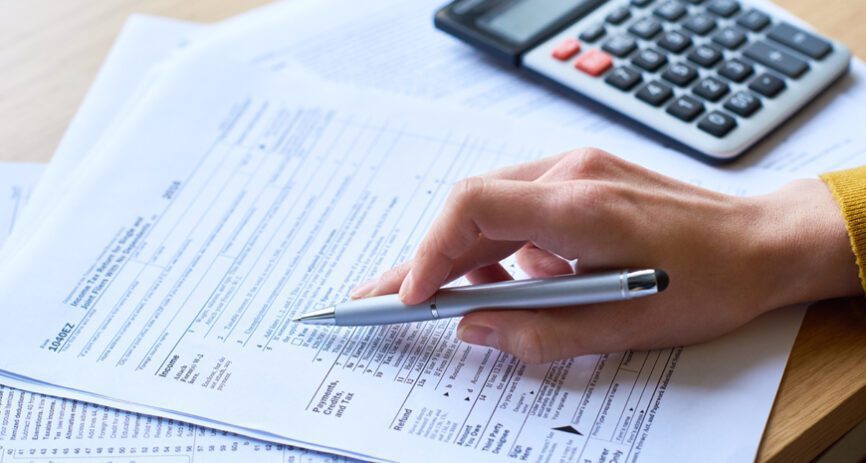
Tax Tips for After Retirement
With retirement on the horizon, you can finally stop worrying about taxes coming out of your paycheck and filing your taxes every year will be easy! Right? Well… not necessarily. You’ll still owe taxes on the money you get from your 401(k) or IRA. And there are actually a few situations you may find yourself in where you’ll have to adjust your tax strategy.
Will you roll over your 401(k) to an IRA? What taxes will you owe as that money is distributed? Once you start receiving your Social Security benefits, do you have to pay taxes on that? What if you have company stock or a pension fund? Are those taxed differently?
Luckily, just like throughout your working years, you can make some decisions to help reduce your tax burden. But the first step is understanding the kinds of taxes you may owe—and that’s exactly where we’ll start.
Understand What You’ll Owe
In retirement, it’s common for people to receive income from a few different sources, each with their own tax differences. For example, Joe may get distributions from a military pension, an IRA he set up when he was working as a contractor, and a social security check. Each of these may be taxed at different rates and have different IRS tax forms.
Some, like a pension, may even have an option to pay taxes at the end of the year, or to have it taken out monthly (like it was probably done with your paycheck while working).
Let’s look at a few common income sources.
Your 401(k) and IRA
If you have an employer-sponsored 401(k), you may consider rolling it into an IRA. As long as you have more than $5,000 in the account, you could leave it in your 401(k). Depending on the best investments and fees, this is up to you.
Most importantly, if you are going to roll your money into a single IRA. make sure it doesn’t distribute to you. It must specifically “roll-over” to a qualifying IRA account, or you could owe taxes on that entire amount.
If you have money in a Roth IRA account, you don’t need to worry about this tax, since there are no mandatory distribution rules. You should know that there are penalties if money is withdrawn before age 59 and a half, but those penalties have been waived with the CARES Act, with some provisions now extended into 2021.
Social Security
You can start taking Social Security payments at 62, but your benefits will be reduced by 25% or more forever. To maximize your benefits, it’s probably smart to wait until 66 or 67 if you can (the exact age depends on your birth year).
Whether your Social Security benefits will be taxed depends on your income from other sources.1 The higher your income each month, the more taxes you may owe on your Social Security payments. You can determine to have taxes withheld from your check if you do owe them, just as you would have done with your paycheck while working. You can do this with a Form W-4V.
Pensions
If you have a pension from government or military work, you’ll pay taxes on that just as you would an IRA retirement account. Like Social Security benefits, you can choose to have taxes withheld from your check. Of course, state tax laws are all different—some states exempt certain government pensions. Some only tax a portion of pension payouts. When filing taxes for income you received through a pension, you’ll use Form 1099-R.
Investments
Investing some of your money in the stock market may have been a piece of your retirement strategy. Keep in mind that any dividends you earn, or money you make from selling stocks, will all be counted as income. Even in retirement, you’ll still have to pay interest and capital gains taxes. Of course, that depends on your income—you may pay 0% in capital gains taxes.2
Get Expert Help When Filing Taxes
Everyone’s tax situation is different. And although you may have had relatively simple tax filings while working, that doesn’t guarantee your retirement taxes will be as simple. In fact, with all the different income sources, your taxes may be more complicated in retirement.
Luckily, there are experts who can help you file your taxes (and even help you find any ways to reduce your tax burden). If you are set on doing taxes yourself, you can use a tax programs like TurboTax. They go even deeper into retirement taxes, explain HSAs, and are updating constantly with the changing rules around distributions, due to COVID-19.
We’ve partnered with TurboTax so you can get $20 off when you file your taxes! Their software walks you through your unique situation, asking the necessary questions to help you navigate taxes after retirement.
1IRS, About Notice 703, Read This To See If Your Social Security Benefits May Be Taxable, March 2019.
2The Balance, How to Estimate Taxes in Retirement, October 2018.
